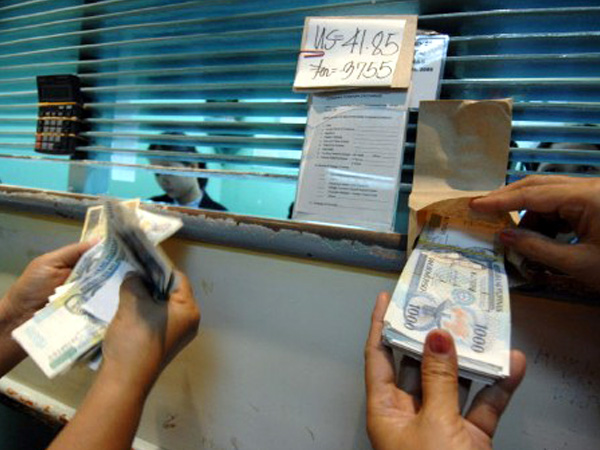HOUSEHOLDS reliant on overseas remittances may have to tighten belts in 2016 as a global recession could slow down such valuable foreign exchange inflows, based on a research from American banking giant Citi.
In a macroeconomic research dated Oct. 23 titled “Will OFW (overseas Filipino worker) remittances stay resilient amid global macro shocks?,” Citi economist for the Philippines Jun Trinidad said a change in the global macroeconomic backdrop remained a key driver of remittances by each overseas worker.
Each one percentage point change in the income indicator of the world’s wealthiest nations under the Organization for Economic Cooperation and Development (OECD) is seen translating to a 1.49 percent change in remittances per worker.
“Global income indicator has the largest effect at 2.59 percent on per worker remittance in the region followed by a Philippine (PH) jobless rate that can elevate or lower per capita remittance by 0.58 percent. More or less ‘migration’ to North America—a favored destination of those seeking overseas jobs permanently and currently hosts the largest migrant OFW population, is premised on the PH jobless rate effect,” Trinidad said.
The economist noted, however, that the country’s booming business process outsourcing (BPO) industry particularly in the urban/commercial centers, including those outside Metro Manila, offered an attractive financial/employment alternative—assuming one has the appropriate skill set—to seeking jobs overseas.
“As OFW remittances plateau with fewer workers seeking overseas jobs, we expect BPO and outsourcing/offshoring segment with better quality jobs, to compensate for foregone remittance earnings,” he said.
The economist noted that the decline in workers seeking overseas jobs since 2011 had actually coincided with the BPO phenomenon. He said this could “reflect better domestic labor market conditions as the BPO phenomenon takes hold.”
The Bangko Sentral ng Pilipinas (BSP) itself had said that it was only a matter of time before BPOs would replace cash transfers as the economy’s main economic engine. Many are expecting the inflection point to happen next year.
Trinidad said “Citi’s global recession call in 2016—hopefully not too severe—could pose downside risk to remittance flows.”
The economist said reports of the country’s balance of payments (BOP) surplus exceeding $1 billion in the first nine months of 2015 has masked weaker remittance flows.
Cash remittances coursed through banks in August amounted to $2 billion, 0.6-percent lower year-on-year. For the first eight months, these cash remittances grew by a modest 4.1 percent year–on–year to $16.2 billion. Trinidad said the dip in August remittances had cast concerns on the resilient nature of the OFW flows.


